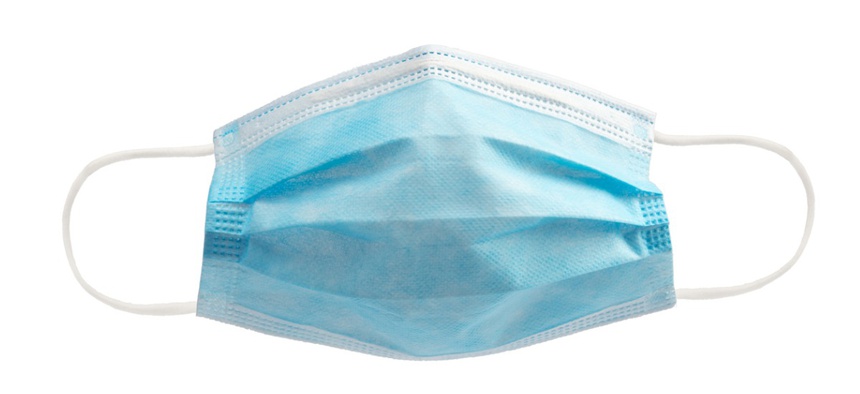
BY MENGISTEAB TESHOME
While skimming the reports of COVID-19 of the first 10 days of April, one can learn that the undesired sides of the pandemic is going to happen in more swiftly manner than ever creating devastating reality in the global community.
It is no secret that senior citizens including professionals from various disciplines are infected and end up in grave, and the number of new cases reported per day is depressing.
The world is observing that senior professionals in various disciplines are highly getting infected and end up in grave, and the number of cases per day report is threatening.
According to the report in the first 10 days of April 2021, a total of 20,666 confirmed cases have been identified. Comparison of the number of confirmed cases in the first 10 days of last month (10,806) shows a marked (91 percent) increase. At the same time, a total of 14, 468 cases have been admitted to both treatment centers and HBIC with a daily average of 1447. This is also a marked increase compared to 6,099 daily admissions (average 610) in the first 10 days of March.
As Yakob Seman (MoH) Medical Service Director, noted in his social platform, the daily facility death has remarkably increased in early April. A total of 275 deaths were observed in the first 10 days of April (i.e. 28 deaths daily on average). This figure was just 101(i.e. 10 deaths daily on average) in the first 10 days of March.
According to him, the number of critical cases being supported by a mechanical ventilator has continued to increase in April to a record level. This is likely straining the national capacity of ICUs. Some regions are running out of ICU beds.
As he stated, the number of healthcare workers infection and admission to HBIC has increased in April. Cumulatively, 2,859 HCW infections, 27 deaths (CFR of 0.9 percent) and recovery rate of 90 percent have been reported since the pandemic has outburst.
In his view, this report confirms that the nation has to strengthen efforts to put in place protocols that could help minimize the spread of COVID-19.
While elaborating Ethiopia’s effort and key swift response to contain the spread of COVID-19, Dr. Lia Tadesse, Health Minister, noted that Ethiopia activated its public health emergency response at the end of January, and it is opening the national Emergency Operations Center, introducing screenings at all borders, and preparing facilities for an influx of COVID-19 cases. As soon as the first case was detected in mid-March, a mechanism for multi-sectoral national response was initiated and the Prime Minister set up a National Ministerial committee to lead and coordinate the government responses.
The nation has established strong and coordinated platform with regional health bureaus, ensuring these have necessary technical and financial support to continue their work without interruptions. Urgent non-pharmaceutical interventions were also swiftly instituted such as school closures and a ban on big public gatherings.
There was a strong collective response not only within the different sectors in the government, but also from the community itself, which played a big role in terms of donating spaces for treatment and isolation centers and by providing financial support and commodities.
Public-private partnership has also played an important role for instance, Ethio telecom pushed out important phone messages and reminders about COVID-19 and Ethiopian Arlines played a significant role in delivery of much needed critical supplies like SARS-COV 2 test kits.
The media and entertainment industry has also disseminated important public health messages. Associations of private employers led the development of private workplace guidance to coordinate and ensure evidence informed workplace responses. Some private industries are involved in the production of non-medical masks and sanitizers for public use. Overall, the private sector came together to help the government’s response by providing expertise. In addition, the professional community set up an advisory council that supported the response with evidence based interventions.
Dr. Lia also said that the role of development partners is clear, as they helped in mobilizing resources and allowing reprogramming funds to the emergency response to COVID-19. There has been significant support from development partners, specifically the Global Fund, Gavi, the World Bank, Jack Ma, WHO and others.
The business community has also been one of the strong partners in the response, through financial, in-kind donations and other support. ’For example, we have been working closely with local manufacturers to shift some of their capacity to produce personal protective equipment (PPE) and sanitizers. We are now in discussions to begin local production of test kits. Local manufacturing not only ensures the availability of the supplies, but also supports local businesses during this crisis.”
The Ministry of Health has been working closely with the Ministry of Industry and Trade to make regulatory processes faster while also maintaining quality of commodities.
The protection of health workers is essential to the successful response. Personal Protective Equipment (PPE) is needed for all health services. The private sector, development partners, other countries, and the community exemplified solidarity by working together to fill gaps in PPE.
She further noted that the nation created a regular forum with the private sector, especially with the private health sector, to collaborate and leverage their capacity within the COVID-19 national responses. Given that most of the facilities thus far have been under the public sector, the government created a clear protocol on how to engage more private sector facilities to operate as COVID-19 treatment centers.
The government has also realized the issue of health coverage and life insurance for health workers. Thus it has decided to work closely with the insurance sector to support health workers’ coverage. Further, it incentivized the private sector engagement through tax exemptions of industries directly supporting production of COVID-19 related supplies.
She stressed: “Pandemic has taken a toll on the economy in different ways. We need to work in partnership to address COVID-19, but also to maintain the economy.”
She further indicated that the nation has been working with the private sector around sustainability of essential services and local manufacturing, but it still need to grow the engagement to best support the health system.
True, since the first case was detected in March, 2020, the government has been working, in collaboration with development partners, private sector and individuals to contain the spread of the virus. Currently, the spread of the pandemic is increasing from time to time. Thus, following the advice provided by health authority, and applying COVID-19 precautions measures in more strict fashion than before, is crucial to prevent the spread of COVID-19. Equally important, collaborative action from all stakes is central.
The Ethiopian Herald April 15/2021


